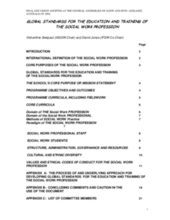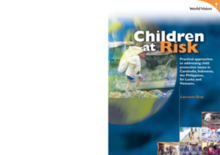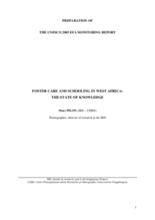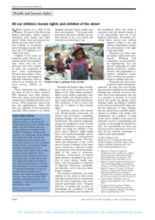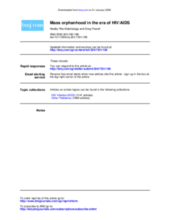Displaying 331 - 340 of 349
Emphasizes the social dimensions of psychosocial support interventions, including participatory groupwork and a focus on reducing stigma and discrimination. Argues that psychological interventions such as counseling should never be a first step.
Evaluation of the Bolsa Escola Program, which was a Brazilian social services program that provided cash transfers to families provided that their school-aged children would be enrolled in and attending school. Examines how beneficiaries were selected, registered, and monitored. Cites inconsistencies in implementation and roles of municipal governments as significant finding.
Outlines a set of global standards for schools of social work.
Discusses the psychosocial impacts of unstable situations on children and their families, with an emphasis on child development. Includes UNICEF’s position on policy and programming principles as well as strategies to address the psychosocial needs of children, families, and communities.
Outlines the impact of HIV/AIDS on children’s education and suggests strategies for meeting children’s educational needs. Includes a list of follow-up resources.
Examines the link between education and the protection needs of children, with a particular focus on the role of education in emergency response.
Discusses approaches to protecting at-risk children in five Asian countries. Identifies programming and policy measures that effectively address child abuse. Emphasis on committing all levels of society to coordinated practical response.
Explores the relationship between fostering and education in West Africa. Identifies special need to focus on protecting and educating young girls.
Brief article arguing for doctors to take a lead role in caring for children on the street. Suggests that physicians could provide direct patient care, advocacy for children's rights, and leadership for reform at the community and national level.
A brief editorial which argues that only by addressing the fundamental causes of the HIV/AIDS epidemic, such as poverty and social exclusion, will a sustainable solution be achieved. Support for extended families and education for children affected by HIV/AIDS are needed to respond the crisis, as well as a larger scale effort to transfer resources, strengthen economies and secure investments throughout Africa.


